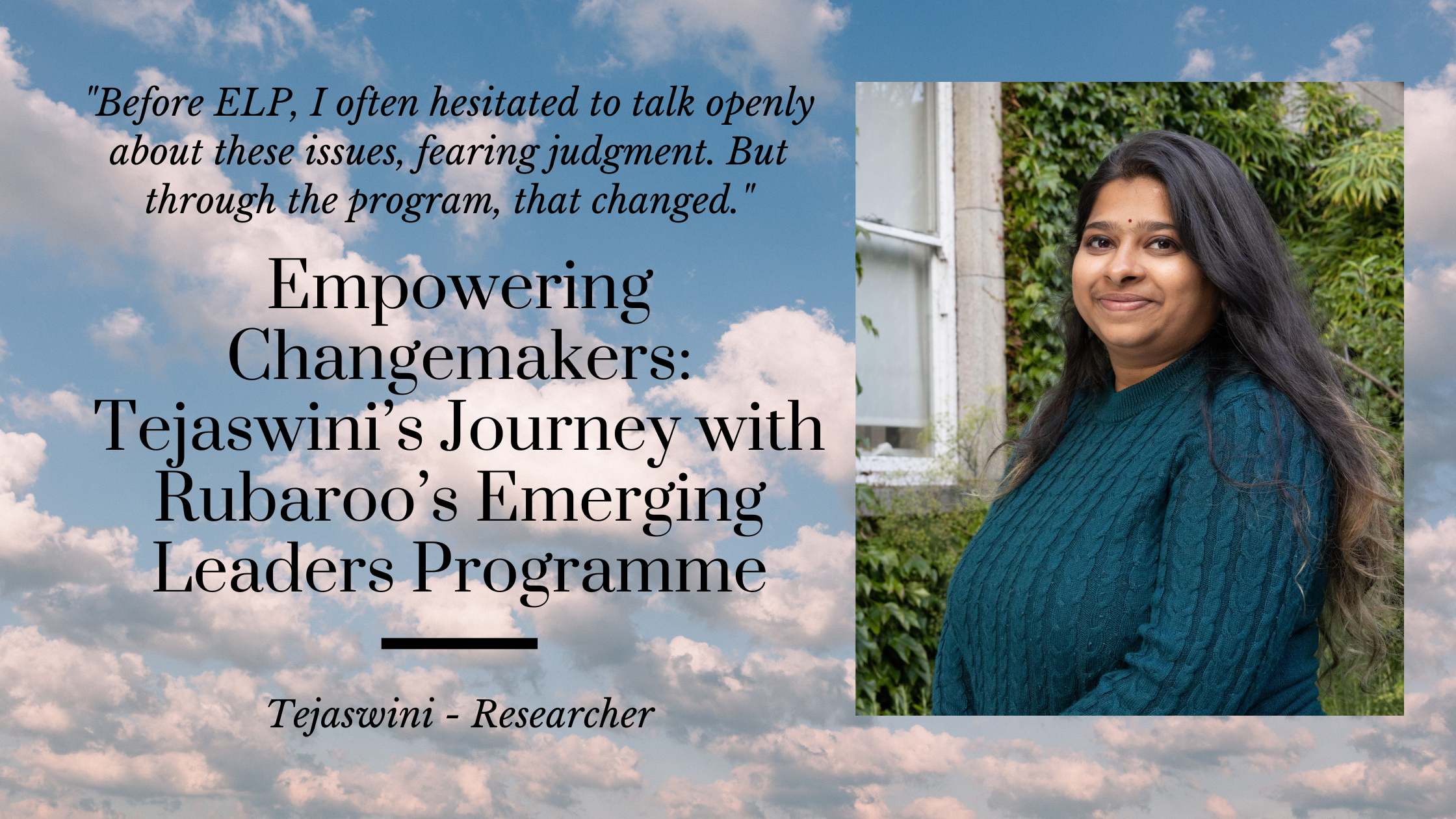In the tranquil Irish landscapes, where she now resides as a researcher focusing on sexual and reproductive health among adolescents, Tejaswini reflects on her journey—a path that connects her past in India to her present global impact. Her story weaves through diverse experiences, from studying pharmacy to working as a data analyst and volunteering with NGOs to earning a master’s in global health. Amid this, one chapter stands out: her involvement with Rubaroo’s Emerging Leaders Programme (ELP) in 2020.
Paths Crossed:
Tejaswini’s introduction to Rubaroo was serendipitous, sparked by conversations with friends who were part of similar youth-led initiatives, like Voice for Girls. Intrigued, she applied for the Emerging Leaders Programme, a decision that aligned closely with her evolving passion for sexual and reproductive health.
“I was part of ELP during the lockdown,” she recalls. “Initially, I doubted whether the virtual format would limit the experience, but it was incredibly guided and interactive.” Despite the limitations of being online, the programme became a beacon of connection during an isolating period, offering structured workshops, regular interactions, and candid discussions about often-taboo topics like gender, sexuality, and reproductive health.
The virtual mode posed unique challenges, especially for a program emphasizing sensitive discussions. Yet, the fellowship adapted seamlessly. Tejaswini fondly recounts: “They created smaller groups for discussions and activities, which helped us bond over WhatsApp. Despite being online, I didn’t feel I was missing out.”
Personal Journey:
For Tejaswini, the fellowship wasn’t just an academic exercise but a deeply personal journey of transformation. “I’ve always been curious about gender and sexuality but came from a conservative background where such topics were rarely discussed,” she shares. “Before ELP, I often hesitated to talk openly about these issues, fearing judgment. But through the program, that changed.”
She recalls a standout initiative, “Samosa pe Sex Talk,” a creative effort to normalize conversations about sexuality in everyday settings. “We wanted to make these discussions as casual as chatting over tea and snacks. It was a bold step, but it resonated with everyone.”
This internal transformation led to meaningful external actions. “All the external changes—helping friends understand sexuality better, facilitating conversations—stemmed from the internal shift I experienced,” she explains. “The fellowship dismantled my inhibitions and allowed me to discuss these topics without fear of judgment.”
Beyond ELP:
Tejaswini emphasizes the importance of organizations like Rubaroo in creating the chain reaction. “The challenge with programs like these is that their impact can’t always be quantified,” she notes. “You can count how many fellows were trained, but the real change is in the conversations and actions that these fellows initiate in their communities.”
Her current research on adolescent reproductive health echoes the lessons learned during ELP. “Whether it’s about addressing gaps in contraceptive knowledge or initiating difficult conversations, it starts with young changemakers questioning traditional norms and proposing solutions.”
When asked how Rubaroo could amplify its impact, Tejaswini underscores the value of partnerships. “Collaborations with government agencies, NGOs, and educational institutions can amplify their work,” she suggests. “By involving diverse perspectives, we can address root problems more effectively.”
What Next:
Tejaswini’s message to budding changemakers is simple yet powerful: “Don’t underestimate your power. Many great things begin with one question you ask.”
As the conversation draws to a close, Tejaswini reflects on what sets Rubaroo apart. “Out of all the organizations I’ve worked with, Rubaroo stands out for its meticulous and relatable content. The relationships I built and the confidence I gained through the program stay with me to date.”
With a smile, she concludes, “I carry the lessons and connections from Rubaroo into my life and work, and I’ll continue to do so. That’s the impact of a well-thought-out program.”



Leave a Reply